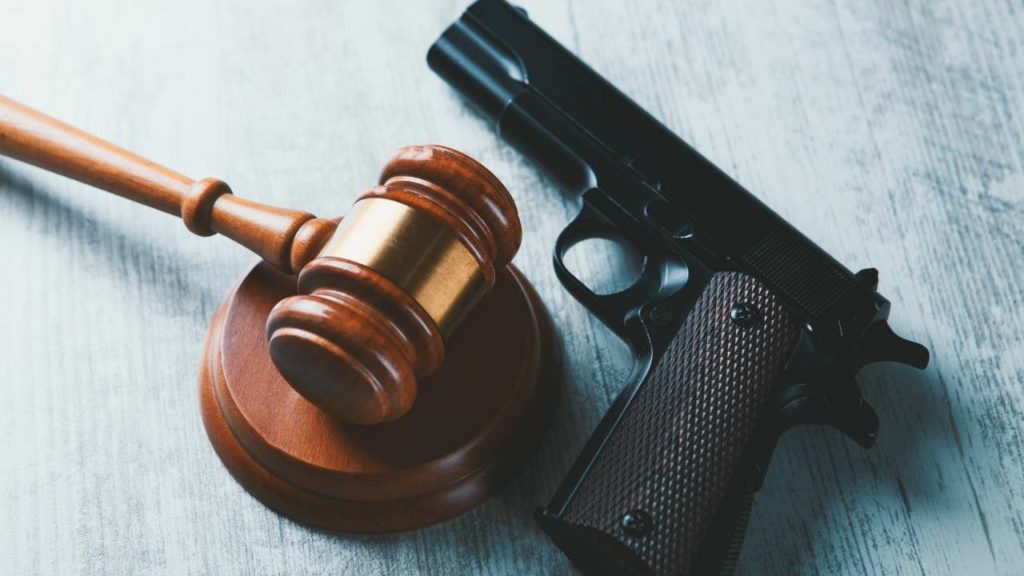Can I Possess A Firearm While On Deferred Adjudication?
What You Need to Know about Texas Deferred Adjudication and Gun Rights
Last year, more than 5600 people were placed on deferred adjudication probation in Tarrant County. More than half were charged with either felony drug possession or assault. Almost every day, we see folks contemplating signing up for this type of probation. And more times than not, they have one burning question: “Can I still have a gun?”
The answer isn’t simple or clear-cut. Texas and federal law are contradictory in regard to this issue. In this article, we are going to discuss Texas deferred adjudication and gun rights to try to clear up confusion on the subject.
What is deferred adjudication probation in Texas?
Deferred adjudication probation (DFAJ) is a form of probation that, if successfully completed, will not result in a conviction for purposes of state law. The defendant is required to plead guilty, however, the judge will “defer” (or postpone) a finding of guilt and place him or her on a period of supervision (probation) with specific conditions/rules to follow. If the defendant successfully completes his or her probation, there will be no finding of guilt, the case will be dismissed and there will not be a conviction on his or her record. However, the arrest will remain on the record.
A key takeaway about deferred adjudication is that it is not a conviction – for purposes of state law. That distinction is important when discussing deferred adjudication and gun rights in Texas.
Under Texas law, can I possess a firearm while on deferred adjudication?
Under Texas law, deferred adjudication is not a conviction and does not directly result in the loss of your right to possess a firearm – under state law. So, technically under state law, you can possess a gun while on DFAJ – unless the judge specifically ordered you not to possess a firearm. That’s an important caveat. Many judges prohibit possessing a firearm as a condition of a defendant’s probation. In other words, if the judge said you cannot possess a firearm while on deferred and it’s listed as a condition of your probation, then you absolutely cannot possess a firearm while on deferred.
Possessing a firearm while on deferred is not permitted under federal law even if you are on deferred for certain state offenses, which we will discuss next.
What does federal law say about possessing a firearm while on deferred?

Federal law contradicts Texas law in some regards when it comes to possession of firearms. This is also a complicated answer, because in some aspects, whether something is a conviction or not depends on how the state addresses the issue and in others areas, any plea is considered a conviction even if it resulted in deferred adjudication.
- If you are placed on deferred for a family violence offense – misdemeanor or felony – you can never possess a firearm. See 18 USC 922(g)(9).
- If you are on deferred adjudication for a felony offense (including state jail with a sentence over 1 year), you cannot possess a firearm. More specifically, 18 USC 922(d)(1) prohibits transferring a firearm to someone under indictment for a felony. While you are on deferred you are considered to still be under indictment.
- After you complete felony deferred, you may be eligible to possess a firearm if your case was not a family violence case. After the deferred period is complete, you then have to look at 27 CFR 478.11 to determine what a conviction is for purposes of this question. This, in turn, directs us to an inquiry into what is considered a conviction under state law. In Texas, a final felony conviction is considered a “conviction” for a felony under 18 U.S.C. § 921(a)(20) but deferred adjudication is not.
Can I possess a firearm if I’m on deferred pro forma probation?
Many people who are placed on deferred adjudication probation are granted pro-forma status, which means they don’t have to report in person to a probation officer. Oftentimes, the only condition of deferred pro forma is to avoid picking up new charges. However, even if you are on deferred pro forma for a family violence offense or a felony offense, you cannot possess a firearm under federal law.
Can I possess a firearm if I received deferred adjudication for assault family violence?
If you received deferred adjudication for a family violence assault charge, you are prohibited from possessing a firearm. No exceptions. Additionally, if you are placed on deferred adjudication and there is a finding of family violence, it cannot be nondisclosed after the successful completion of probation. This means it will stay on your record forever. A prosecutor can also use it later on to enhance a family violence assault to a 3rd or even 2nd degree felony.
What’s the difference between ownership and possession of a firearm?
Ownership and possession are not the same thing. Possession means the gun is in your care custody control. Ownership just means you own the gun.
Can I go hunting if I’m deferred adjudication in Texas?
Again, state and federal law are contradictory. A person on DFAJ can possess a firearm and ammunition and go hunting while on deferred under Texas law, but to the extent outlined above it would be prohibited under federal law.
Are you a gun advocate considering deferred adjudication? Talk to an experienced attorney.
If you are a gun advocate charged with a crime, it’s important to understand the laws addressing Texas deferred adjudication and gun rights. Many people accept offers of DFAJ, only to find out after the fact that they are federally prohibited from possessing a firearm, which puts them at risk for a federal charge if they carry for self-protection or are avid hunters or sportsman. That’s why it’s important to retain an experienced attorney who understands the intricacies of state and federal gun law at the outset of your case and can properly advise you of your rights. Call 817-203-2220 for a consultation with a skilled lawyer who can help you navigate this process and find the right defense strategy for you.
Note: The law firm of Varghese Summersett does not handle restoration of gun rights. We represent individuals charged with or accused of a crime. We do not handle post-conviction gun right issues.






